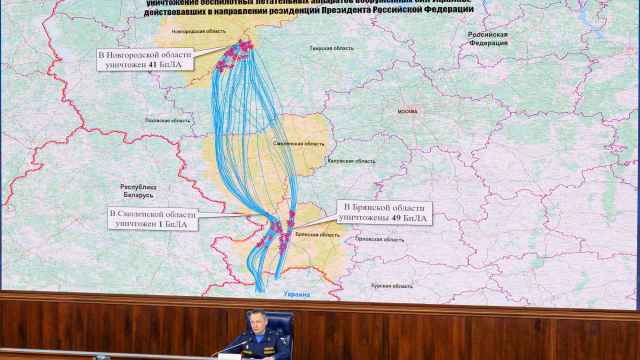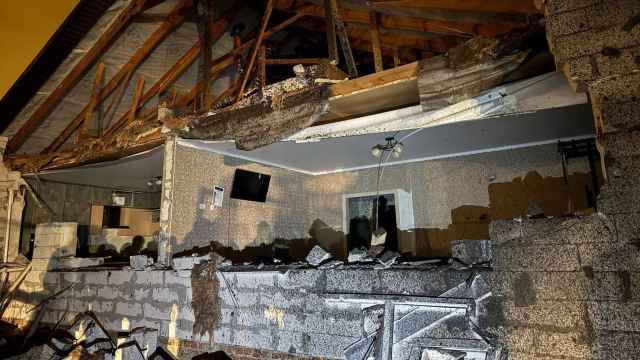KIEV — Greenpeace said Monday that hundreds of thousands of Ukrainians are still eating food contaminated by radiation from the Chernobyl nuclear power plant explosion a quarter-century after the blast.
In a report, the environmental group said samples of milk, berries, potatoes and root vegetables in two Ukrainian regions show unacceptably high levels of the radioactive isotope cesium-137 from the 1986 blast. The regions are in northwestern Ukraine, outside the so-called "exclusion zone" around the plant, where residency is generally prohibited.
Greenpeace researcher Iryna Labunska criticized the government for halting counter-radiation measures in the regions two years ago. Those measures included supplying uncontaminated hay for dairy cattle.
Ukrainian government officials were not immediately available for comment.
A reactor at the plant exploded on April 26, 1986, spewing a cloud of radiation over much of the Northern Hemisphere. A zone of about 30-kilometer radius around the plant was declared uninhabitable, although some plant workers still live there for short periods and a few hundred other people have returned despite government encouragement to stay away.
The samples cited by Greenpeace were taken in the Rivne and Zhitomir regions, which were in the direct path of the radiation cloud.
In one village in the Rivne region, milk samples showed radioactive contamination up to 16 times higher than the accepted norms, Greenpeace said. Mushroom and berry samples showed radiation levels four times as high as acceptable.
The report said that although most of the milk is consumed in the region where it's produced, the berries and mushrooms presented a wider danger because they could be sold at poorly supervised markets throughout the country.
A Message from The Moscow Times:
Dear readers,
We are facing unprecedented challenges. Russia's Prosecutor General's Office has designated The Moscow Times as an "undesirable" organization, criminalizing our work and putting our staff at risk of prosecution. This follows our earlier unjust labeling as a "foreign agent."
These actions are direct attempts to silence independent journalism in Russia. The authorities claim our work "discredits the decisions of the Russian leadership." We see things differently: we strive to provide accurate, unbiased reporting on Russia.
We, the journalists of The Moscow Times, refuse to be silenced. But to continue our work, we need your help.
Your support, no matter how small, makes a world of difference. If you can, please support us monthly starting from just $2. It's quick to set up, and every contribution makes a significant impact.
By supporting The Moscow Times, you're defending open, independent journalism in the face of repression. Thank you for standing with us.
Remind me later.





